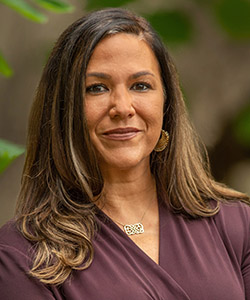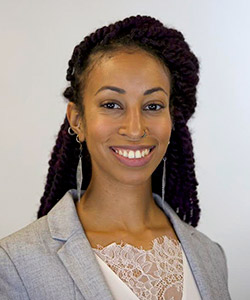Community Justice and Civil Rights Clinic
The Community Justice and Civil Rights clinic works in collaboration with social justice movements on legal and policy strategies aimed at redressing some of the most pressing, urgent issues of our time—namely over-policing and mass imprisonment. Students enrolled in this clinic gain experience in using multiple strategies for social change. The clinic will expose students to various pathways for social change—community organizing, litigation and policy advocacy. At the end of every semester, students will have developed specific litigation skills, gained experience in public speaking and client counseling and participated in the transactional client work associated with legislative and policy advocacy.
Student work often includes:
- Conducting community based know your rights trainings in Chicago’s communities most affected by police violence and mass imprisonment;
- Participating in litigation related to abuse policing and/or mass imprisonment, specifically students will depose a witnesses, draft motions for federal court, monitor and enforce consent decrees, draft/respond to discovery requests and when the opportunity presents, argue motions and/or participate in evidentiary hearings/trials as student attorneys.
- Working in collaboration with community partners to support policy advocacy through research, legislative drafting and the production of advocacy materials.
About Sheila A. Bedi

Sheila A. Bedi is a clinical professor of law at the Northwestern Pritzker School of Law and director of the Community Justice and Civil Rights Clinic, a law school clinic that provides students with the opportunities to work within social-justice movements on legal and policy strategies aimed at redressing over-policing and mass imprisonment. Bedi litigates civil-rights claims on behalf of people who have endured police violence and abusive prison conditions. She also represents grassroots community groups seeking to end mass imprisonment and to redress abusive policing. Bedi teaches classes on legal reasoning and writing and the law of state violence to students who are incarcerated through Northwestern’s Prison Education Program. Bedi’s partnerships with affected communities on litigation and policy campaigns have closed notorious prisons and jails, increased community oversight of law enforcement, created alternatives to imprisonment and improved access to public education and mental health services. Previously, Bedi served as a deputy legal director of the Southern Poverty Law Center. Her honors include the NAACP’s Vernon Dahmer and Fannie Lou Hamer Award and the Federal District Court Excellence in Public Interest Award (N.D. IL). Bedi writes about race, gender, and the justice system and her commentary has been published by U.S. News and World Reports, Huffington Post and USA Today. View Faculty Profile.
About Kara Crutcher
 Kara Crutcher joined the Community Justice and Civil Rights clinic in 2021 as the Thomas F. Geraghty fellow. Kara has been organizing since she was a high school student and has worked on campaigns that address a number of issues including immigrants’ rights, the wide-spread Chicago Public School closures, and gender based violence. Now, Kara is a mental health informed attorney dedicated to movements for justice and the creation of spaces where people can truly lean into the fullness of their humanity. Her primary area of work includes civil rights litigation on behalf of individuals navigating the intersection of systemic oppression, mass incarceration, and over policing. Kara also represents grassroots community organizations advocating for innovative, community based solutions to violence and resource deprivation, and she is a volunteer attorney for the Cannabis Equity Illinois Coalition where she supports the coalition’s record clearing and cannabis equity efforts. Kara’s work is rooted in the path she continues to take towards radical self-love and healing, coming from a family, community, and people that have been deeply impacted by systemic violence, intergenerational trauma, and the practice of joy as a tool of resistance. Kara incorporates somatic practices such as Interplay, and Theater of the Oppressed into her lawyering, teaching, and facilitation work, and co-curates the annual, mid-west based artist residency, Swarm.
Kara Crutcher joined the Community Justice and Civil Rights clinic in 2021 as the Thomas F. Geraghty fellow. Kara has been organizing since she was a high school student and has worked on campaigns that address a number of issues including immigrants’ rights, the wide-spread Chicago Public School closures, and gender based violence. Now, Kara is a mental health informed attorney dedicated to movements for justice and the creation of spaces where people can truly lean into the fullness of their humanity. Her primary area of work includes civil rights litigation on behalf of individuals navigating the intersection of systemic oppression, mass incarceration, and over policing. Kara also represents grassroots community organizations advocating for innovative, community based solutions to violence and resource deprivation, and she is a volunteer attorney for the Cannabis Equity Illinois Coalition where she supports the coalition’s record clearing and cannabis equity efforts. Kara’s work is rooted in the path she continues to take towards radical self-love and healing, coming from a family, community, and people that have been deeply impacted by systemic violence, intergenerational trauma, and the practice of joy as a tool of resistance. Kara incorporates somatic practices such as Interplay, and Theater of the Oppressed into her lawyering, teaching, and facilitation work, and co-curates the annual, mid-west based artist residency, Swarm.

